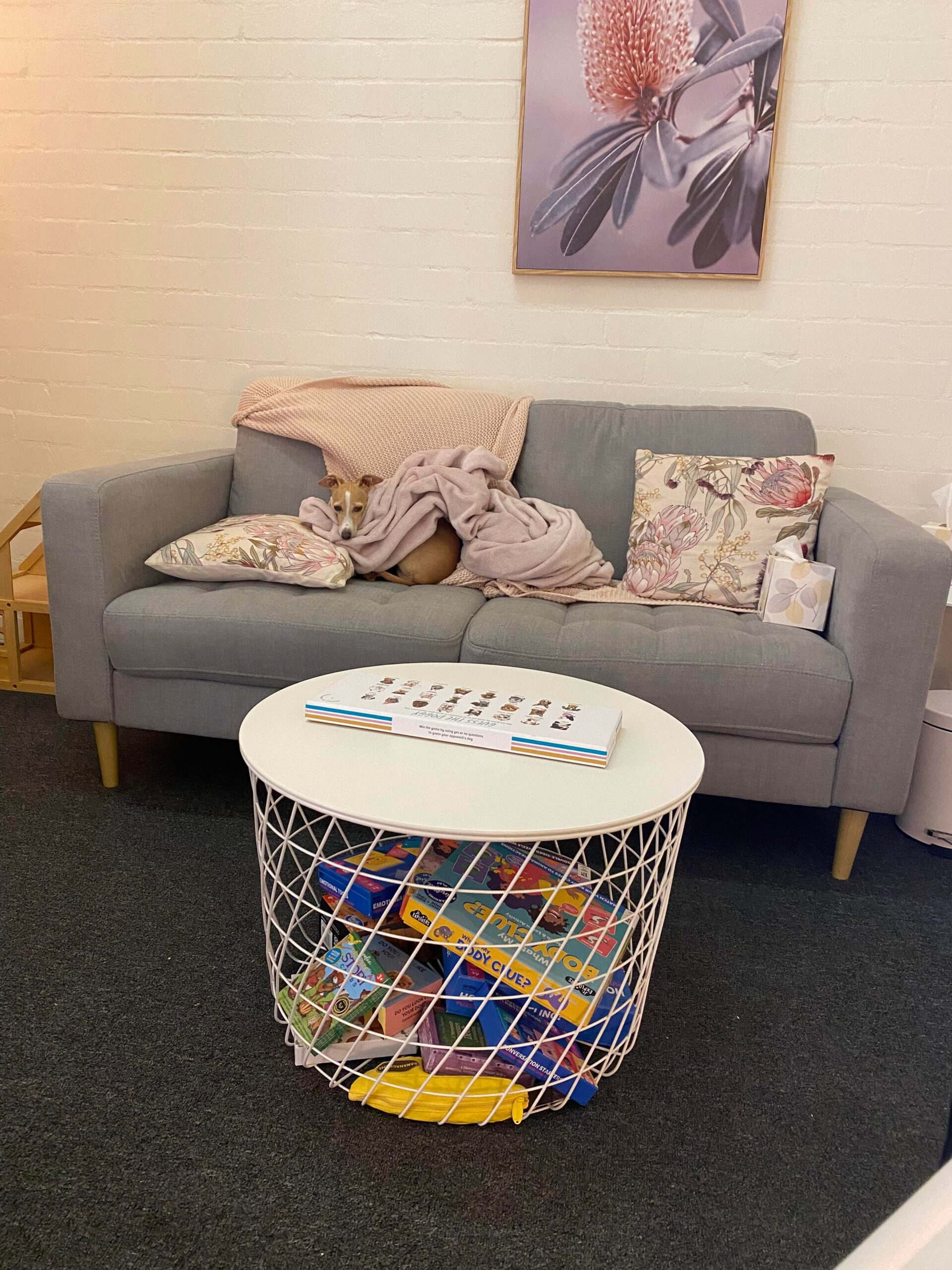Services & FAQ
What can Megan help with?
Some of the most common reasons people contact Megan include:
Mood and anxiety disorders
(eg. depression, anxiety, phobias, bipolar, OCD)
Trauma and stress, including complex trauma
Personality disorders
Chronic health issues & chronic pain
Dissociative disorders including DID
Grief (including pet loss)
Gender dysphoria & navigating gender transition
(including WPATH assessment)
Social difficulties (eg. interpersonal challenges, bullying, social anxiety)
Parenting challenges (eg. separation anxiety, school can't aka school 'refusal', attachment issues, behavioural difficulties, trauma and complex challenges)
Navigating life as a neurodivergent person
(eg. Autistic, ADHDer, AuDHD, learning disabilities, ABI, trauma & mental health challenges)
Megan has experience with most psychological conditions and personal challenges; if you need assistance with something that isn't specifically listed here, feel free to get in touch to find out if Megan can offer support.


How can Megan help?
Megan draws from a range of evidence-based therapy approaches depending on the needs of each individual.
While some clients come seeking particular types of therapy or have an idea of what they would like to work on, just as many aren't really sure where or how to start off in therapy. If you're not 100% sure where to start, Megan will be able to work with you to find a plan. Regardless of modality, her therapy style is always collaborative, trauma-informed and neurodiversity-affirming.
If you know the types of therapy you're seeking, these are some of Megan's favoured modalities:
Acceptance and Commitment Therapy (ACT)
Schema Therapy
Dialectical Behaviour Therapy (DBT)
(individual, no current groups)
and
Eye Movement Desensitisation and Reprocessing
Therapy (EMDR)
Many clients are especially interested in EMDR - a treatment which harnesses the brain's own 'information processing' capacity to provide relief from trauma, phobias, depresion, anxiety and more.
Megan has completed several EMDRAA accredited training courses with the EMDR Institute Inc. (Level 1, Level 2, EMDR for Structural Dissociation) and has been using EMDR since 2019. Megan has also completed adjacent trainings in Flash Technique and parts work and is comfortable using EMDR with most presentations including complex trauma, attachment difficulties and dissociative disorders.
Megan is trained in many other treatment modalities, so if what you're looking for isn't specifically listed here, please feel free to get in touch to find out more.
Who does Megan work with?
Megan works with
Children and parents (ages 2+)
Teens
and Adults
of all genders, who are seeking individual therapy to address their current concerns or challenges.
Megan works with individuals of diverse cultures, genders, sexualities and abilities; everyone is wholeheartedly welcome at Full Bloom.
Megan is experienced in working with people of many different relationship styles and family styles, including individuals in polyamorous or ENM relationships, individuals in kink positive relationships, separated and blended families, LGBTQIA+ and rainbow families, SMBC, kinship carers and families with adopted members.
Megan works with all kinds of individuals across the age span. Full Bloom is a safe, inclusive space. If you think Megan might be a good fit for you, please feel to get in touch today.

FAQ
Frequently Asked Questions
Megan is not currently taking new clients and does not take a waiting list – please check back on this page in October 2024.
You do not need a doctor’s referral to see Megan, unless you would like to claim session rebates under Medicare. If you are eligible, see your GP, Paediatrician or Psychiatrist to obtain a Medicare Mental Health Care Plan and valid referral letter. It is usually recommended to book a ‘longer consultation’ or ‘double appointment’ with your doctor to ensure ample time to complete the plan and letter.
Existing clients may email admin@fullbloompsychology.com to book ongoing appointments.
Full Bloom Psychology is proud to offer consultation fees which are well below the current APS and AAPi recommended fees for Australian psychologists*.
As Megan is a Clinical Psychologist, clients using Medicare Mental Health Plans receive a rebate of $141.85 per session (up to 10 rebates for individual sessions per calendar year). Your rebate will be higher if you reach the Medicare Safety Net Threshold.
Fees:
Standard Fee $240
(after a Medicare rebate, out of pocket cost is $98.15)
Saturday Fee $270
(after a Medicare rebate, out of pocket cost is $128.15)
NDIS Fee $222.99
(available weekdays before 5pm)
*the AAPi recommended fee is $315 and the APS recommended fee is $311
Full Bloom Psychology no longer offers bulk billing.
Megan has been proud to provide bulk billing and lower cost options for 7 years in the private practice setting but can sadly no longer sustain this practice.
It was reported in 2022 by the Australian Association of Psychologists Inc. (AAPi) that private psychologists earn as little as $12 per hour for bulk billed sessions, once taking into account the costs of running a psychology practice (eg. business operation costs, administration, insurance, tax, etc.) as well as professional registration fees, continuing professional development and supervision which are mandatory for all psychologists.
If you require bulk billed or free services, please feel free to contact Megan for a list of options in the local area.
Yes.
Full Bloom is able to accept payments from organisations such as EACH, Workcover, VOCAT and the NDIS (plan managed or self managed). There may still be an out of pocket cost when using third party payments – please check with Megan at time of booking.
Some private health options do offer rebates for psychology sessions. Check with your insurer directly to see if this may be an option for you.
As a Clinical Psychologist, Megan incorporates comprehensive assessment as an integral component of the therapeutic process, regularly offering verbal feedback within the framework of treatment planning.
Megan is also able to provide more formal assessment services with an accompanying written report for diagnostic purposes, letters of support, Disability Support Pension, NDIS, Victims of Crime and more. Report or letter writing is charged on a pro rata basis; please contact Full Bloom directly for a quote. Formal assessments and written reports are not covered by Medicare.
Megan is able to diagnose most psychiatric conditions; however, although she regularly works with neurodivergent individuals, she is not currently offering Autism, ADHD, or cognitive/educational assessments. Please feel free to contact Megan for a list of excellent referral options in the local area.
Megan’s capacity for written work is limited and available writing time books out far in advance; most reports require a 4-6 week turnaround time.
No.
Full Bloom is a very small clinic with no fenced outdoor area or extra space for Tina. If you are not keen on having a dog in the room during your session you may wish to opt for Telehealth. Alternatively, please feel free to contact Megan for alternative clinics that are dog-free.
Full Bloom has a 24 hour cancellation policy.
If you cancel your appointment with less than 24 hours notice you will be charged 100% of your session fee.
Unfortunately, no; however, Megan can still see clients via Telehealth, or in person at the Belgrave Hub which is fully accessible.
Full Bloom is currently in an old building with stair-only access from the carpark (about 15 steps up) or from Burwood Hwy (about 10 steps down) or from Sandells Road (about 20 steps up).
There is a brick ramp leading to the clinic on Sandells Road but it is not wide enough or flat enough for a wheelchair or scooter to comfortably and safely get through. The door to the clinic is a standard size and the toilet is accessed through a very narrow space, neither are suitable for wheelchairs.
Children
Megan usually recommends parents attend an initial session without any children present in order to gather background information and discuss your child’s needs candidly. Parent-only sessions may attract a Medicare rebate if deemed clinically necessary, up to two rebates per calendar year. Subsequently, Megan may see you and your child together in sessions, or your child may spend sessions one on one with Megan – this will depend on your child’s treatment plan and goals.
Teens
Megan usually sees younger teens with a parent/guardian for at least the first half of their initial session, to ensure all parties understand matters of consent and confidentiality and to gather developmental history. Older teens may prefer parent-free sessions but can elect to have a parent/guardian with them.
If you’re a teen who isn’t wanting parent involvement but you’re feeling nervous, you might like to bring a friend, support worker or other appropriate support person along with you until you feel comfortable.
Everyone
It is common to feel nervous or even overwhelmed when meeting a new psychologist – just remember, Megan is there to guide you if you’re unsure where to start. During your first session Megan will ask questions to help guide you through the process and will start to form a plan and help you set some goals for therapy.
You can give as much or as little information as you would like, it’s OK if you’re not ready to answer all questions. Megan will not ask you to explain the details of traumatic events you may have experienced as this is not usually helpful – Megan uses trauma-informed methods to assist clients in trauma recovery.
The first session is not only a chance for Megan to get to know you, it’s also your chance to get a feel of whether Megan seems like a good fit for you. It is crucial that you feel comfortable and confident with your psychologist to ensure the best possible outcomes. If things don’t feel ‘right’ for you, you can feel free to talk to Megan about changing the approach or finding an alternative psychologist (or if that feels too scary, just talk to your referring GP).
Yes. If you would prefer to have your appointment over the phone or by video conference, simply let Megan know before your appointment. Currently Medicare rebates are still available for Telehealth sessions.
Clinical Psychologists are trained in the assessment and diagnosis of mental illnesses and psychological difficulties and are able to provide a wide range of psychological services. Using a range of techniques and therapies, they treat presentations ranging from mild, to severe & complex, using individually tailored treatment. Clinical Psychologists may also be involved in research, teaching & supervision, program development & evaluation, public policy and other activities.
To become a Clinical Psychologist, Megan completed a 3 year Bachelor Degree majoring in psychology (coursework), a 1 year psychology Honours program (coursework and thesis), a 2 year clinical psychology masters program (coursework, thesis and placements) and a 2 year registrar program under the supervision of an experienced, board-approved supervisor. To continue to hold a clinical endorsement, all Clinical Psychologists must undertake continual learning in areas related to clinical psychology such as prevention, diagnosis, assessment and treatment.
A Psychologist with general registration similarly completes an accredited 3 year bachelor degree, 1 year honours or equivalent and 2 year psychology masters or 2 year supervised training program to gain registration as a psychologist. All psychologists must undertake ongoing professional learning to be able to continue to hold registration.
The clinical endorsement does not mean that one type Psychologist is ‘better’ than another – it denotes completion of an additional 2 year supervised training program and commitment to ongoing learning in the area of endorsement. All Psychologists undergo extensive learning and a rigorous assessment process to obtain and keep their registration.
